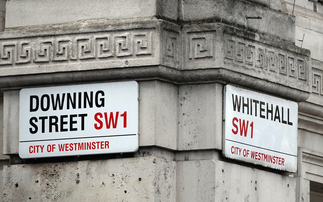Markets post-Brexit need to be treated with extreme care but, says Tim Price, if patient investors are not able to pick up bargains now, they never will
The European Union, it turns out, was a kind of magical mirror. Onlookers saw in it what they wanted to see, not what was actually there. Pacifists saw a political construct that kept the peace for 50 years. They could not see the rising numbers of young unemployed in the eurozone's periphery.
Advocates for the free movement of people welcomed Schengen, but could not see the bodies of refugees washing onto the shores of Greece and Italy. Supporters of Big Government welcomed an ever larger union - at least until now - but worried less about the rising cost of regulation others had to bear.
And now the mirror has been shattered.
We have been here before - in September 1992, to be precise, when Sterling was ethnically cleansed from the ERM. That was an idea that was popular with most economists too. But against expectations and the massed wailing and gnashing of teeth of exponents of the dismal science, the UK economy did rather well out of Brexit 1.0.
Contrary to expectations, inflation actually fell. GDP recovered - as well it might, given the freedom to set monetary policy according to the demands of our economy, and not of Germany's. So what's different this time round?
The euro, that's what. While Britain has managed to escape from the asylum, 27 countries still remain, shackled to a single currency and a one-size-fits-all monetary policy run by Mario Draghi, a magician who is running out of tricks to keep the system from falling apart. "We are magic people," boasted ECB governing council member Vitas Vasiliauskas of Lithuania in May. "Each time we take something and give to the markets - a rabbit out of the hat."
Only now, the audience is shifting nervously in its seats and glancing towards the exit. Europe's banks, in particular, are on the ropes again. Post-Brexit, the price of credit default swaps on senior bank debt has surged. Rather ominously, the cost of insuring against German government default is moving in lock-step with that of Deutsche Bank. European investors will surely come to regret the glacial pace of recapitalising the continent's banking sector since Lehman Brothers failed. They have had eight years to do so, after all.
The great value investor Benjamin Graham introduced the world to the concept of Mr Market - a manic depressive, who should always be treated as a servant, not a master. Mr Market is currently scooping out the baby with the bathwater. If patient investors are not able to pick up bargains now, they never will.
Treat with extreme care
But markets post-Brexit deserve to be treated with extreme care. It is too soon to tell whether the EU will, over the coming months, experience an existential crisis that sees the entire project come apart at the seams. Forget Sterling, which is probably close to fair value now - at least against the US dollar - the real currency to fret about is the euro itself.
And the so-called ‘flight to safety' is anything but. The bond managers at Stratton Street Capital point out that their portfolios now have no exposure to any countries in the EU, because their overall levels of sovereign indebtedness are so high. Buying dubiously creditworthy debt at all-time low - and sometimes negative - yields, is not prudence or caution. It is insanity.
With the bond market largely uninvestible, and the banks coming under fire again, the path of least resistance in asset class terms should probably be towards defensive value in the stockmarkets of the world. For us, that means a special interest in Asia which, unlike Europe, is not mired with a huge welfare burden, monstrous debt load, lousy demographics and economic stagnation as far as the eye can see.
There will be plenty of opportunities in the months ahead - but they are likely to be along the roads less travelled. The more popular markets now face horrible political instability - and increasingly fractious electorates. Maybe magical thinking was the right idea after all.
Tim Price is manager of the VT Price Value Portfolio











